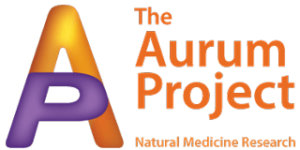A Diagnosis – Not Always Necessary In Homeopathy – The Case of the Woman Who Couldn’t Open Her Mouth
Thank you to Dr. Karl Robinson who contributed this case from his clinic to The Aurum Project blog.
“It sounds as if she’s talking through her teeth,” I said to myself as I jotted down her name, address, telephone number and date of birth. Looking up, I saw she was doing exactly that. Her lips were moving but not her jaw. Her mouth was closed-except for the slight movement of those lips. I was startled at first, then curious.
She said that toward the end of October, she awoke one day with a tingling sensation in the right side of her face. A few days later, her tongue felt heavy and she began to slur her words. On November 1st she woke up and was unable to open her mouth. Just like that, her jaw had seized up. “My lips felt paralyzed,” she said. “They also felt heavy. So did the right cheek.”
She went to the Emergency Room of a nearby hospital and was admitted. A CT scan (computerized tomography) revealed no abnormalities. Her doctors, neurologists, had NO DIAGNOSIS, and they discharged her.
As her condition did not improve, a couple of weeks later she went to another hospital and was admitted. An MRI (magnetic resonance imaging) of the brain was normal. Again, a second group of neurologists had NO DIAGNOSIS. Again she was discharged.
Two teams of neurologists at two Houston hospitals had said they had never seen anything like whatever it was she had.
She was 31 years old and the mother of five.
When I saw her, December 3, she was still unable to move her jaws other than fractionally though in the past week, some movement and feeling had returned to the lips.
I asked about any past illnesses and she told me she had a seizure disorder that started when she was three years old. She took the anti-epileptic drug, Keppra, but there was nothing to connect her present inability to open her mouth with epilepsy. She was also under quite a bit of stress but more about that later.
“In 2000, I went in to have my wisdom teeth removed,” she said. “The dentist had trouble removing them and several broke off and were left in the sockets.” She told her doctors about the wisdom teeth and they thought the fragments of teeth deep in her sockets could be playing a role in her inability to open her mouth. They sent her to an oral surgeon who took a panoramic x-ray of all the teeth and said, in his opinion, the problem was not due to the teeth. Again, NO DIAGNOSIS.
Finally, she was sent to an Ear, Nose and Throat specialist who passed a tiny camera up her nose into the back part of the pharynx and decided that the jaw was, “in a state of spasm,” but could not say why.
She was discharged, WITHOUT A DIAGNOSIS and without treatment.
Seven years ago, she had a miscarriage thought by her doctors possibly to be due to the drug, Dilantin, that she was taking then for her epilepsy. Her fourth child was born with an atrial septal defect, a heart abnormality, and was scheduled for surgery. Another child had a kidney problem.
Often in medicine, stress can lead to emotional and physical problems so I inquired if she had any worries. She said the son with atrial septal defect was also a hemophiliac. For the past year, she had been worrying about him. She got up frequently during the night to check on him.
Back to her current problem: for the past three weeks she had been experiencing sharp pain in the left side of the face two to three inches below the ear that was extending upward. With the pain she had nausea. This morning, before coming to see me, she had sharp, stabbing pains in the right side of the face below the right ear in the jawbone that extended upward. It occurred between four and five o’clock in the morning.
I asked her to describe herself. “I am responsible and active,” she said. “I am the team mom. I help on field trips.”
She also had two jobs, one at her church for 35 hours a week, and the second at a bank, as a teller.
She appeared to be very self-contained and self-controlled and said she expected to overcome her current problem.
Her husband had been depressed July to October of this year. “It put a little more strain on me,” she said.
I was struck by this woman’s aplomb. She appeared able to bear all sorts of responsibilities with hardly a bother. She held two jobs, was an active mom, took a dance class, was active in her children’s school and did all this without complaining and without evidence of anxiety or depression. In fact, she seemed quite all right.
At the very end of the interview she said it felt as if her jaw joint was very tight. “I feel the jaw needs to be popped open.”
To be very honest, I had quizzed this woman trying to learn if her inability to move her jaws was possibly an hysterical phenomenon. I was satisfied it was not. She could not have been more calm, more centered or more objective. So I used the physical symptoms:
Cramping & spasming of jaw joints (she felt it, the ENT confirmed it)
Industrious (she worked two jobs and ran a large family)
Benevolent (she did for others)
The homeopathic medicine given was Belladonna.

Homeopathic remedy Belladonna is made from the Atropa Belladonna plant in the Solanaceae Family
She called a week or so later to say the spasm of the jaws resolved quickly as did all other symptoms.
This case exemplifies an interesting difference between conventional medicine and homeopathic medicine. For the M.D.’s, a diagnosis is considered the indispensable first step. Diagnose accurately, then treat, is a given. Homeopaths, on the other hand, know that an accurate diagnosis is not always possible. But we can function very well without one because we rely upon the symptoms which, for us, are signposts to the medicine. The symptoms are a reflexion of the disordered vital force, according to Hahnemann, the founder of homeopathy. LIKE CURES LIKE has very little to do with the diagnosis and everything to do with the symptoms. The homeopathic medicine that is most LIKE the symptoms presented by the patient will cure.
Thank you to Dr. Karl Robinson who has given permission to The Aurum Project to reproduce his case history.
Karl Robinson received his B.A. from Yale University and his M.D. from Hahnemann Medical College in Philadelphia. After completing a residency in internal medicine, he studied homeopathy first at the National Center for Homeopathy in the U.S. and later at the Royal Homeopathic Hospital in London. In addition, he has studied extensively over the years with leading homeopaths from Greece, Germany, Belgium, Holland, England, South America, Canada, and India.
Dr. Robinson teaches and writes about homeopathy and maintains his medical practice in Albuquerque, New Mexico. He is the former editor of the American Journal of Homeopathy published by the American Institute of Homeopathy. He is the founder and president of the New Mexico School of Classical Homeopathy and founder and past president of the Texas Society of Homeopathy. In recent years he has been teaching homeopathy in Latin America, notably in San Salvador, Guatemala, Cuba, and Honduras.
